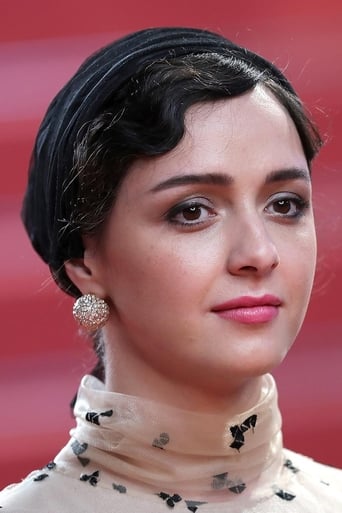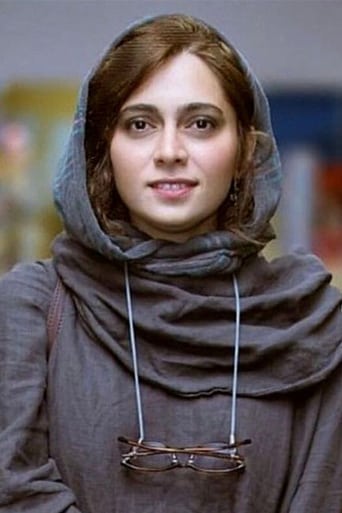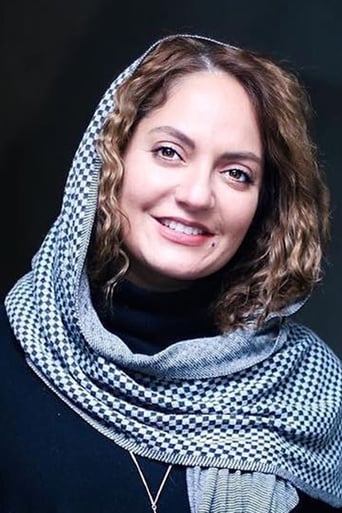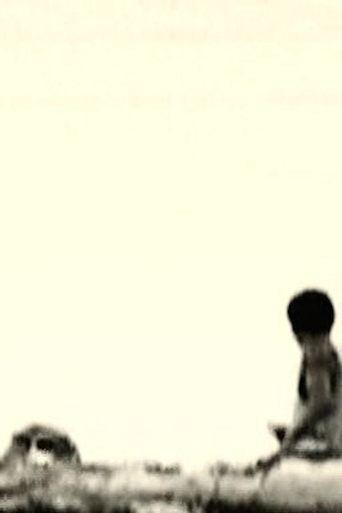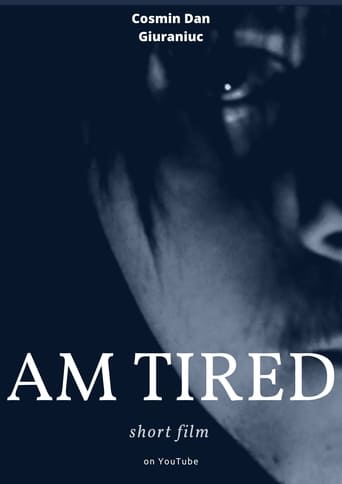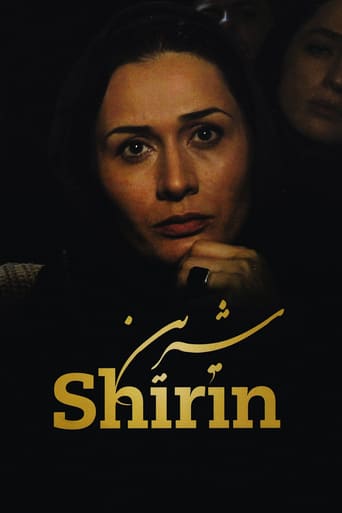
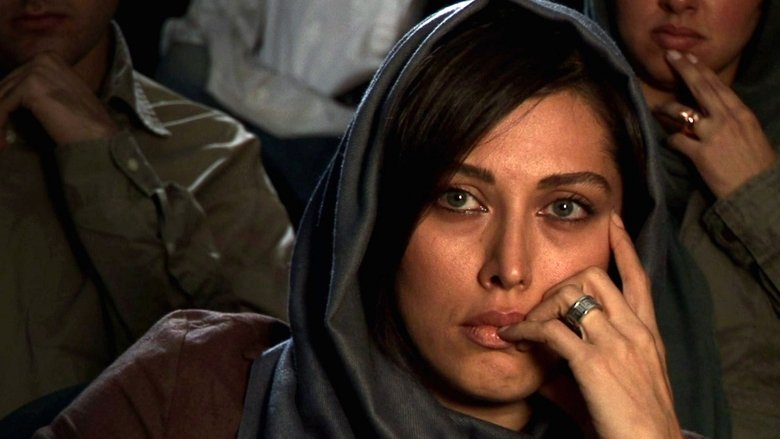
Shirin (2008)
A hundred and fourteen famous Iranian theater and cinema actresses and a French star: mute spectators at a theatrical representation of Khosrow and Shirin, a Persian poem from the twelfth century, put on stage by Kiarostami. The development of the text -- long a favorite in Persia and the Middle East -- remains invisible to the viewer of the film, the whole story is told by the faces of the women watching the show.
Watch Trailer
Cast


Similar titles
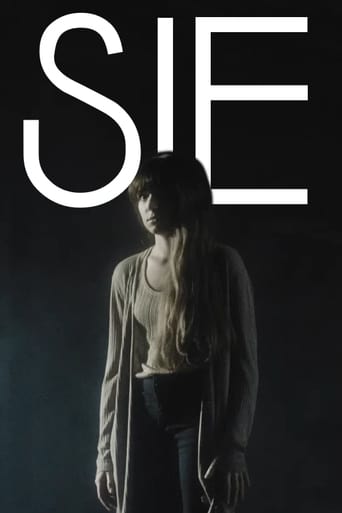
Reviews
Nice effects though.
Memorable, crazy movie
This story has more twists and turns than a second-rate soap opera.
A terrific literary drama and character piece that shows how the process of creating art can be seen differently by those doing it and those looking at it from the outside.
This is only my second Kiarotami film, the first was Certified Copy, 20 minutes into that I was going to give up, mainly because HE the character infuriated me beyond belief. I stayed with it and was soon after totally immersed. Approaching this film, I now was forewarned that I would be asked to think and reflect, to that end I had not read any prior comments. The set up is easy to understand; a room full of actresses watching a well known play, but that is the premise only, at least I could be aware that it could not possibly be happening in real time and this was a performance of a performance, the reactions are staged as much as the play we do not see. Where does its meaning reside I do not really know nor want to know, you can give it a feminist meaning, a political meaning and aesthetic meaning and surely it is all of these and perhaps more or perhaps less, Asking for meaning almost always diminishes true art
it was the most awful movie you may watch in your whole life and I guarantee it.you want to kill yourself while watching.life is short.don't waste your time on such a disaster ever made.the story is ...let me say that there is no story,its just some actors who watch another movie and you have to watch their faces and the whole movie is this.it continue to the end ,maybe its good for a psychiatrist who want to study their character or their personality,I can't really say it was a movie.it was not.some people in Iran says oh this is conceptual art and you cant get it.its for special people(themselves) but when a work has a meaning behind it you can understand.it doesn't have such a thing.it doesn't even have a story line,a structure and a result.
This is an amazing film. I knew very little about it when I went except that 'all it showed' was a lot of women's faces watching a film ... What I experienced, however, was a brilliant - and daring - piece of multi-layered cinema. Yes, 'all we watch' are the faces of a group of 140 (apparently) Iranian women - plus Juliet Binoche - watching the traditional story of Shirin, an Armenian Queen. We hear the soundtrack (and, in my case, read the subtitles) and see the women's reactions. But we never see what they see. They are looking past and beyond us.The first thing that strikes one is the beauty of - and in - the faces of these women - and how beautifully Kiarostami lights and shoots them. Not to mention the complex and subtle rhythms of the edit. Women from their late teens into their sixties achingly expressive like renaissance portraiture ...Holbein or Velasquez or some of the Dutch masters come to mind ... And even after is had dawned that some, or perhaps all, of these faces might belong to actresses, each cunningly made up, the layers of the film, for me, only deepened: here, after all, is the dialectic of actors being watched - 'as themselves'.Because, we wonder, are they aware that they are being filmed, watched? Of course. Kiarostami would have explained the set-up to them. That must be why he has managed to persuade so many famous and attractive Iranian women actors to take part; what a show reel for them! But through this choice, the director allows us to watch them while wondering how much they might, at any one point, be 'acting'? How much they are aware from moment to moment, these 'fakers', these 'deceivers', that they are being observed? And when, as they become engrossed in elements of the story, they forgot? And become 'themselves'.And they do become engrossed. The tears flow. As did mine - watching their tears. They flinch when swords scythe, when heads and hands are chopped off. They lower their eyes with a memory of their own. Or in horror. They smile with recognition. Their faces light up. Darken.So much is shown. But so much is not revealed. So much work is left to our imaginations.And of course, there is the whole layer of these women being Iranian. A culture we don't know. Or think we know and dismiss out of hand, or patronise out of our ignorance. Every one of the women - even Juiette Binoche - is wearing a headscarf, headscarves that themselves become expressive of the wearer's individuality. How they drape them. Each one, like each face, unique. How each scarf lies. How each scarf frames the face. How the women themselves move the folds and adjust them, or play with, or arrange the material, unconsciously, as they watch...And on another level, a deeper level, it's a great choice of Kiarostami's, that the film they are watching is about Shirin, a strong women, a lover, a hero Queen - an epic story crammed with sex, passion, betrayal, longing, lust and all expressed in the most heightened language and emotion. Because, as we watch these women watching, we know that they have, collectively, experienced all of this. Their eyes tell us that. Their tears. Their little smiles of recognition. Their open and child-like faces.This is the ultimate success of the film. We meet 140 Iranian women. And one French one - also a clever choice ... We have a chance to watch them intimately. We, in the dark, watch them in the dark, watching. We fall in love with them; no less so the older ones, whose faces are etched with life. We know, young and old, they have all lived and had lives and loves and children, some of them, and grief and failures and loss and triumph over odds. And yet we know nothing of their stories. The details. Yet yearn to know them. The unknowable. This is a film which gives the lie to a million clichés and 'certainties' about Iran, and 'freedom' and Islam and 'The Other'. I do recommend people to find a place to see it. But in a cinema. On a big screen. After all, it's an epic - but on a vibrantly human scale.
Kiarostami has proved here that one can reach the truth of cinema by the most direct route, to examine the faces of the women members of a film audience while they watch, an unseen to us, film of the great 12th century Persian epic poem, 'Khosrow and Shirin' Kiorstami's slow tracking camera traces the faces of 114 famous Iranian actresses and one famous French actress. Despite the potential for a forensic piece, the work is in fact a poetic study of the feminine face that recognises the emotional as well as intellectual process involved in watching a film. We are caught in a kind of mise en abyme of spectatorship and although we are never given the opportunity to see the film these faces respond to we are, nevertheless, caught in the narrative of the romantic epic, the faces themselves display the richness and complexity of a reading; tears, smiles, quizzical glances, the turning away through lowered lids, all of these responses combine to form a group portrait as symphonic construction. It may sound like watching paint dry but in fact the film is a welcome relief from the kind of action cinema that has become a numbing experience in contemporary cinema. The chance to see beauty is rare in cinema today, here we are allowed time to relish the female face. We might see this film as returning us to the early cinema of Hollywood that rejoiced in the first truly cinematic rhetorical trope, the close-up. In this sense 'Shirin' is a triumphant celebration of cinema itself.


